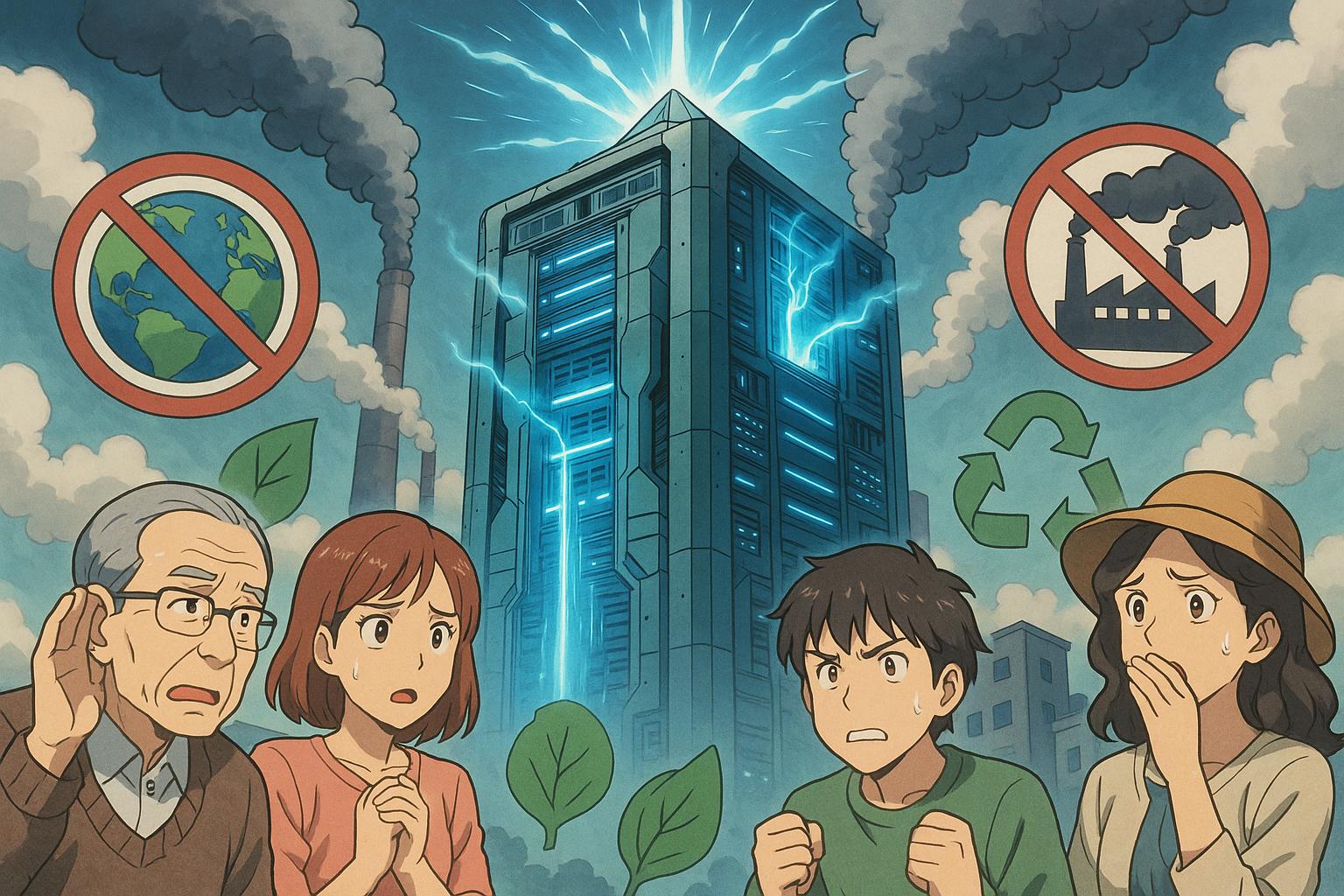This week in technology has brought forth a kaleidoscope of developments, stretching from ambitious AI ventures to stirring environmental debates, encapsulating our ever-evolving relationship with innovation. As we explore the latest, it's essential to reflect on the balance between technological advancement and its societal impacts.
One of the more provocative stories centres on the NAACP’s call for a suspension of operations at Elon Musk’s data centre, Colossus, located in South Memphis. The supercomputing facility has ignited concerns among local communities and environmental advocates due to its significant ecological footprint. The centre, which reportedly consumes vast amounts of electricity and water, operates 18 unpermitted gas turbines that contribute to local air pollution issues. Residents have voiced their apprehensions over the detrimental effects on their health and environment, recalling past corporate reassurances that were left unfulfilled. According to local leaders, while the potential for job creation exists, many fear that the project's environmental costs will outweigh its benefits. This juxtaposition clearly illustrates the dilemma of hosting high-tech facilities in areas that historically struggle with pollution.
In parallel, Meta has announced an ambitious plan to automate the majority of its product risk assessments using AI, aiming for a staggering 90% automation rate. This approach aims not only to streamline processes but to adhere to a 2019 Federal Trade Commission (FTC) settlement that demanded enhanced privacy protections. Critics, however, question the efficacy of AI in evaluating risks associated with its platforms, such as Instagram and WhatsApp, particularly regarding consumer safety. The FTC has cautioned that with the deployment of AI technologies, strict compliance with existing consumer protection standards is paramount, further underscoring the need for robust mechanisms to safeguard users against potential risks.
In an intriguing twist in the realm of aerospace innovation, Welsh startup Space Forge has garnered attention for its ambition to manufacture high-tech materials in space, having recently secured $30 million in funding. The company proposes that the unique microgravity environment of space offers advantages in crafting materials that could revolutionise various industries on Earth. The growing interest in space-based manufacturing signifies a shift towards exploring off-planet resources, as companies seek new avenues for technological advancements unhindered by terrestrial limitations.
Meanwhile, the bold aspirations of SpaceX have become a focal point for both criticism and admiration. Following a series of rocket explosions that have drawn comparisons to cinematic spectacles, experts in the field suggest these failures are integral to the development process. Such incidents highlight the trial-and-error nature of aerospace projects where setbacks can yield crucial insights, albeit tempered with the recognition that public safety remains a persistent concern.
As we wrestle with these complex narratives, it becomes clear that the future of technology is fraught with both promise and peril. The metaphor of Icarus serves as a poignant reminder of the risks associated with unchecked ambition in innovation. High aspirations must be tempered with ethical considerations and a commitment to environmental stewardship. Thus, as we delve deeper into this new tech era, the challenge lies not only in harnessing the power of ingenuity but also in ensuring that progress is made responsibly and transparently.
As the tech landscape continues to shift at an unprecedented pace, remaining informed and vigilant is paramount. Whether it involves the deployment of supercomputers, navigating the ethical ramifications of AI, or venturing into the cosmos, the interplay between innovation and accountability demands our careful attention.
Reference Map:
- Paragraph 1 – [1], [2], [3]
- Paragraph 2 – [1], [4], [6]
- Paragraph 3 – [1], [7]
- Paragraph 4 – [1], [3]
- Paragraph 5 – [1]
Source: Noah Wire Services
